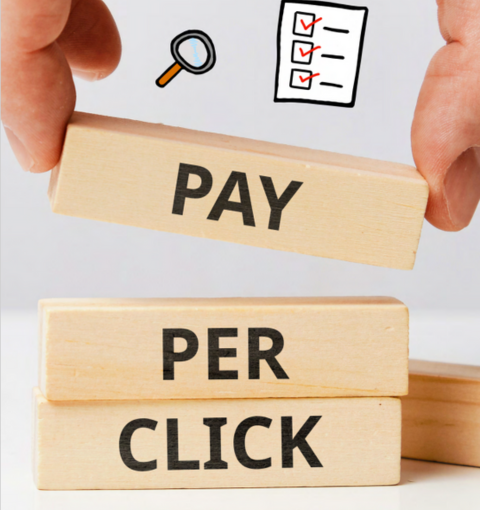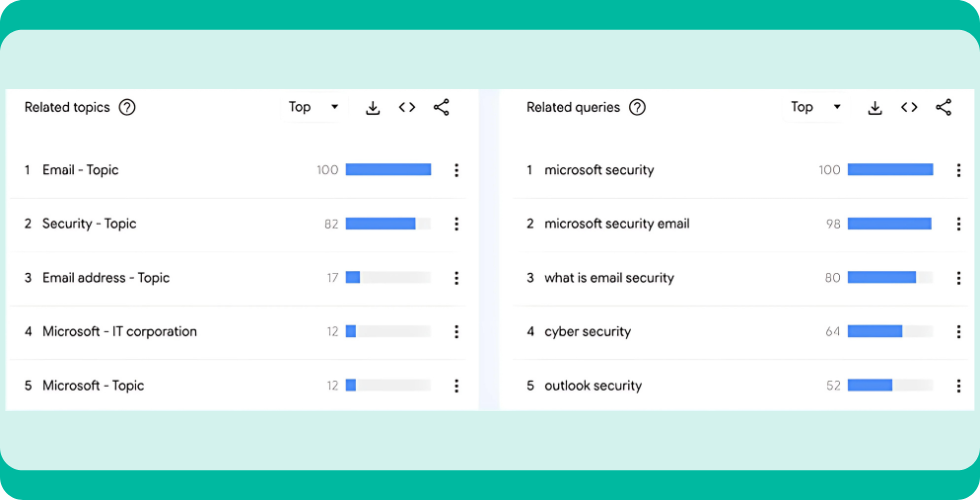In this ebook, you will learn all about how to optimize your business for search engines.
- What is SEO?
- Why MSPs should care about SEO?
- SEO V PPC
- Getting Started with SEO
- The MSP and Local Search
- SEO and Keywords
- What is new in MSP SEO for 2024
- On-page vs. off-page SEO
Download the PDF version here.
How to Optimize your Business for Search Engines
Picture this scenario: A potential customer knows they need technology to fix a problem. They have planned out their requirements, identified the right tech, and know they need a managed service provider to deliver this technology. So, how do they find the right fit? Typically, that customer will begin by using a search engine like Google. They enter a search term in the search bar and click submit.
As an MSP, you operate in a highly competitive market: The MSP Alliance estimates that there are around 150,000 MSPs globally . Standing out in such a crowded marketplace means an MSP must be as visible as possible.
Understanding how to use Search Engine Optimization (SEO) may seem like a dark art, but it is more like a science. For an MSP, having a way to leapfrog over the competition without paying for costly Pay-per-click (PPC) ads is an enticing idea, and SEO is one way to do this.
Searching for a tech solution often begins with a Google search. Google handles around 99,000 searches per second and crawls over 1 billion websites, attesting to this. Google also has over 90% of the market share for search engines . An MSP is more likely to attract customers and build its business by optimizing its position in Google's search results.
This short eBook takes you through optimizing your MSP business by optimizing your SEO.
What is SEO?
The nascent World Wide Web may go back to the early 1970s with ARPANET, but the Internet we know today has its roots in the 1990s. There are various anecdotes about who coined the idea of optimizing web content so it could be more easily found. However, methods to maximize SEO (Search Engine Optimization) didn't exist until Google introduced its PageRank algorithm. In 1997, the Webstep Marketing Agency entered the phrase "search engine optimization" into the lexicon of online marketing.
Simply put, you perform SEO by optimizing your web content to match how a search engine finds it.
A search engine like Google uses a specialized algorithm to locate websites. For example, Google PageRank ranks a website in the search results based on the quality and quantity of links pointing to the web content. PageRank uses a scoring system of 0 to 10, with 10 being the most relevant search result. The scale is logarithmic, so a ranking of 4 is 25X better than 2.
Google uses around 200 factors to establish a web page's ranking. The top five are as follows:

- Content Quality: High-quality content that is informative and factual.
- Links: Links from other websites to your content are important, but the quality of the links is vital. Higher-ranking pages that link to your content have a greater weighting. Other important links are internal links and outgoing links to other authoritative websites.
- Technical SEO: Factors such as your website's speed, the use of a digital certificate to secure your site (HTTPS), and mobile-first optimization all affect ranking results.
- Keyword Optimization: The use of keywords and phrases that are relevant to the search term.
- User Experience: Is your website easy to navigate, user-friendly, and accessible.
As mentioned, many other factors come into play when optimizing a website for search engines. Things like having a Google Business Profile and social signals are two examples.
Google has been experimenting with AI-enabled search since the introduction of RankBrain in 2015. RankBrain uses an interpretation model to apply more personalized factors, including a searcher's geolocation, and interpret the words of a query to identify “true intent.” Google believes that this adaptive search delivers more relevant results.
Most recently, Google has moved to incorporate Generative AI into its core algorithm—Search Generative Experience (SGE). Google's core algorithm will increasingly incorporate SGE to determine website relevance against search engine queries.
Why MSPs Should Care about SEO
The competitive market space populated by an MSP means that every avenue for improvement in business visibility must be explored. SEO is a cost-effective marketing technique that allows your MSP business to be seen in search engine results. Optimizing page ranking in specific Google searches means you don't have to pay for costly PPC ads. When done correctly, an MSP can take full advantage of people searching for your services.
$60,000 or more in lifetime value - “One new $2,000 MRR client from SEO can result in $60,000 or more in lifetime value. The ROI from SEO blows other lead-generation methods out of the water.”

SEO V PPC
There is an alternative to SEO, and that is Pay Per Click (PPC). Google Ads uses a PPC model, allowing a business to capture an audience via a sponsored listing at or near the top of a search results page. PPC has its place. For example, an MSP may use PPC ads rather than SEO to target searches that use competitor MSP business names.
SEO Benefits
- Less expensive than PPC.
- Has a more trustworthy image than paid-for ads.
- It has longevity, and your page will be increasingly well-placed over time if you continue to update the content.
- Your search results build organic growth, and people proactively find your website.
PPC Benefits
- It’s more expensive than SEO.
- The results are immediate - you pay, and your ad is placed high on the search page.
- You are placed highly in the results, even for competitive search words.
- You don’t have to deal with search engine vagaries and continuous algorithm updates.
Using PPC alongside SEO can be a strategic decision. A mix of the two optimizes your reach across highly competitive keywords that build your domain presence while reaching prospects searching for local MSPs.
Getting Started with SEO
MSP SEO has a beginning but typically no end. It should be viewed as an ongoing task that helps build up your online visibility over time. To put this into context, Google updated its search algorithm with 36 major updates between September 2018 and September 2023.
Getting started on SEO begins with research and a strategic plan. It would be best to define your goals and KPIs (key performance indicators). Read Google’s “Search Essentials. ” This will provide you with the basics for SEO optimization. Google’s Search Essentials guide also shows how to create people-centric content that is vital to good website rankings.
A mantra to follow is to “increase, generate, and grow”:

Typical SEO Goals
Increase Web Traffic
KPIs
Organic Users, New Sessions, Page Views
Typical SEO Goals
Generate More Leads
KPIs
Form Submissions, Calls, Demos requested
Typical SEO Goals
Grow Revenue
KPIs
Average Order Value, Online Sales
Of course, one of the core areas of SEO is effectively using keywords and phrases. Another is deciding who your prospects are and where they are located.
The MSP and Local Search
Many MSPs work in local markets, and local search results are something that an MSP may wish to focus on. This is where “Local SEO” comes into play. Local SEO optimization concentrates on your specific territorial reach. An MSP targeting a specific geographic area might want to focus on search phrases such as “Best MSP in Kansas” or “Best managed security services in Kansas.”
There are Three Pillars of Local SEO to Consider:
- Locality: Google calculates the distance between the search query and the location of the search result. In local search, keywords should reflect your locality, e.g., "managed email security services in Kansas."
- Business Visibility: How visible is your company on Google Business Profile (GBP)? Do you have a Google Business listing with reviews? Have you set your business's correct category and location using the GBP settings? The details you use in GBP should be consistent with the director listing and other online places that show the address, phone number, etc.
- Prominence: Google will use signals on your company's prominence in the online community, such as whether your business is listed in local directories.
Whether your prospects are local or global, your keyword research is critical to SEO success.

SEO and Keywords
Ranking highly in search results requires a strategic vision. There’s no point in having an excellent rank for an email helpdesk product if you want to draw customers looking for an email security solution. It would be best if you were ranked for the right keywords and phrases.
Keyword research is core to understanding the keywords and phrases that resonate with potential customers. Several free and paid tools on the market will help you to do this research. Alternatively, you can use Google Trends to find a specific search area's most popular search terms. The example below shows related topics when searching for "email security." You should use related terms that are popular with searchers. It is essential to find the most relevant keywords and phrases, as these will form the basis for the content on your website.
When researching keywords, you also look for phrases that prospects will likely use to search for your services. For example, "managed IT services cloud solutions," "MSP pricing," "choosing an MSP," and "MSP reviews" are all baseline candidates.
Basics When Choosing Keywords
- Avoid low-volume keywords.
- Analyze Keyword Difficulty & Competition and avoid Highly Competitive Keywords.
- Understand that some keywords are oversubscribed, making gaining a high ranking difficult.
Keywords are something that an MSP can control. However, other factors add complexity to the SEO process. On-page vs. Off-page SEO is an area that can challenge the MSP.

On-Page vs. Off-Page SEO
By now, you'll realize that SEO has many moving parts. One aspect of getting SEO right is understanding two fundamental areas, off and on-page SEO:
On-Page SEO
The term on-page SEO captures all the factors that can be controlled on an individual MSP’s website. These factors include:
- Page Speed: Fast page loads on all devices are a must-have for optimized SEO.
- Local Schema: Extra markup within an MSP website HTML gives Google information on the type of business you run and the services you provide.
- Robots.txt: The robots.txt file tells Google to scan certain pages and not others.
- Broken Links: Every link on your MSP website must work. Google penalizes “404 not found” errors.
Off-Page SEO
Everything that is NOT on your website but that impacts SEO is known as off-page SEO. These factors include your credibility and trustworthiness, as captured in reviews and other online signals.
On-page SEO and off-page SEO are complementary areas that need to be optimized separately.
What is New in MSP SEO for 2024
One thing to remember about SEO, especially optimizing search engine results in Google, is that the algorithms change regularly. Areas that you should keep watch on include the following:
- GenAI and Search: Google’s AI update Including Generative AI in search results will likely affect how search ranking is calculated.
- Google Maps: MSP SEO is improved by keeping up to date with recent “vicinity” updates added to search algorithms. Your office location is now one of the most essential MSP SEO strategies.
- Google Reviews: A vital aspect of robust MSP SEO. Encourage your customers to leave reviews.
- Google E-E-A-T ((Experience, Expertise, Authoritativeness, and Trustworthiness): the E-E-A-T update means that MSPs need to demonstrate their expertise by offering high-quality, expert content on their website.
Using SEO to target prospects can bring in customers and build a business, but getting SEO right is a challenge. Jumping the Goggle algorithm barrier will reap the rewards. An MSP should take on this challenge to tackle the growing competition in the space.
Get Started With TitanHQ Today!
At TitanHQ, we are dedicated to partnering with MSPs to help them build a high-margin security practice, supporting both existing clients and attracting new ones with our unique value proposition. Our advanced network security solutions currently protect thousands of businesses in over 200 countries worldwide.

Susan Morrow
- CYBERSECURITY
Talk to our Team today

